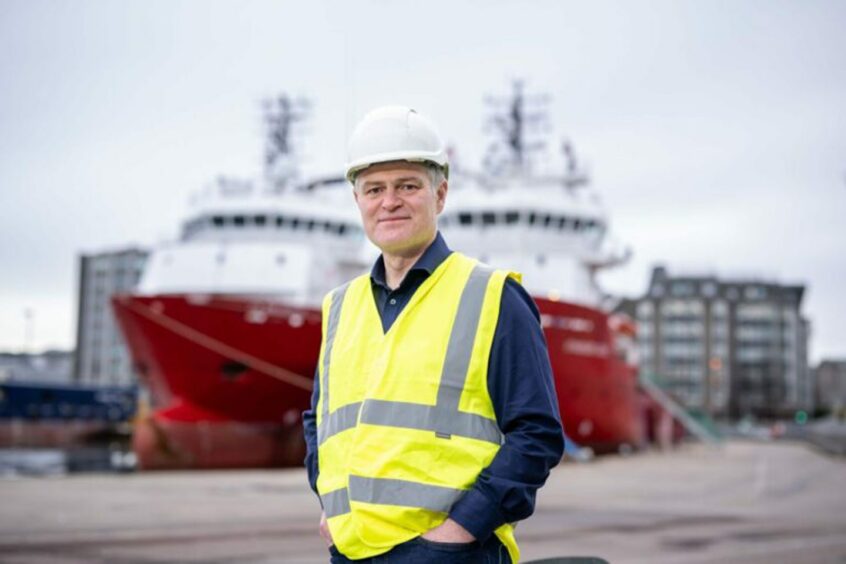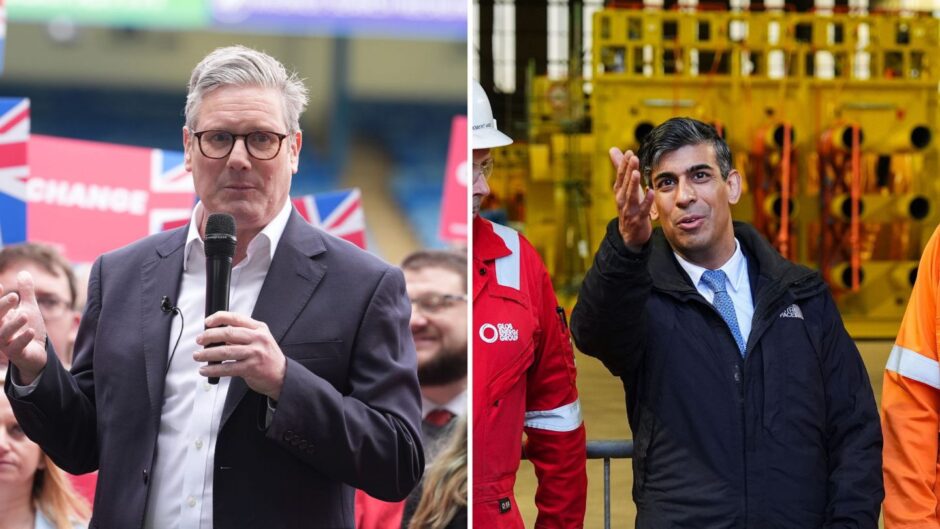As the country gears up for a general election and manifestos are released, Offshore Energies UK (OEUK) has highlighted the importance of supporting the “more than 200,000 people whose livelihoods depend on the sector,” in its latest report.
Labour, the party polled to win the general election on 4 July, committed to its pledge for no new oil and gas licences last week.
However, the trade body is fighting the corner of the country’s hydrocarbons industry.
OEUK’s Economy and People report outlines: “The sector supports around 1% of the value of the UK economy and 1 in every 160 of its jobs.
“This contribution is significantly higher in certain parts of the UK. For example, in Scotland the industry is estimated to support around 1 in 30 jobs.”
Additionally, OEUK pointed out that “stakeholders need to understand the impact that policies can have” as they take to the ballot boxes.
The trade body wrote: “In the case of the offshore energy sector, the right policies can unlock opportunities to create growth and fresh jobs.
“Equally, it is helpful for people within the industry to be able to confidently articulate what the sector brings, and how their work is important to sustaining and growing this.”
Ahead of the report’s launch, author and OEUK market intelligence manager Ross Dornan underlined how far the UK is from the policy needed to secure a home-grown energy transition.
He explained there are things appearing in party manifestos that OEUK “aligns with”, namely economic growth, emissions reduction and increased energy supplies. However, there are equally policies that stand in the way of OEUK’s goals.
“There are parts that we do think are challenging; we want to see ongoing access to licencing, we want to continue to see work on the fiscal regime to make sure we’ve got a competitive and stable fiscal position which allows us to compete internationally, and we’ll continue to engage really positively on these areas,” Dornan said.
He explained that the trade body also wants to see work continue on offshore wind, carbon capture and storage and hydrogen.
“We’ll continue to work constructively with all parties who want to see these similar outcomes and who want to see the benefits of a home grown energy transition realised.”
Supportive policy needed for ‘home grown energy transition’
OEUK said offshore energy sector job opportunities could increase by 50% by 2030 with supportive policy. But OEUK CEO David Whitehouse isn’t seeing this support.
“I remain deeply concerned by Labour proposals to end new oil and gas licences,” he wrote on LinkedIn as the party unveiled its proposed policies.
“The bulk of the £1.4 trillion pounds to achieve net zero in the UK must come from private companies,” he continued, after supporting Labour’s proposed state-owned energy company.
Mr Whitehouse argued that the industry needs “a predictable fiscal regime” to sustain investment.
He explained that in the “global race for energy investment”, the Energy Profits Levy (EPL) and signalling around energy firms are scaring off the funding the sector needs.
OEUK align with Labour on skills transferability
Energy transition jobs and skills have been a focus for OEUK as it presses on with a ‘skills passport’ for workers looking to work across traditional and renewable industries.
This follows the news earlier this month that a Labour government would create an offshore skills passport to allow workers to move between fossil fuels and renewables.
“Our report shows that the offshore industry could invest £450bn in UK energy by 2040,” said Whitehouse.
The trade body boss argued that the “path to success” is a homegrown energy transition that harnesses the skills built up by the UK’s energy legacy.
He continued: “With supportive policy, the industry can deliver enduring economic value, scale up our supply chain capacity, sustain skilled jobs, and deliver energy security, all while delivering on our climate goals.
“We are committed to ensuring the incoming government recognises the importance of our industry’s role in the economic future of the UK and the contribution of more than 200,000 people whose livelihoods depend on the sector.”
OEUK external relations director Jenny Stanning previously shared that she believed skills would play a crucial part in the campaign trail soon after the election was called.
Ms Stanning told Energy Voice: “I think we’re going to hear a lot of focus on people and on jobs and I think that’s absolutely right from all of the parties, that’s what I would expect them to talk about.”
OEUK on the EPL
As well as skills and future oil and gas licencing, the sector has been campaigning against fiscal policy that has been driving investment out of the UK in recent years.
Labour’s recent manifesto committed to “close the loopholes” in the windfall tax on oil and gas firms, raising £1.2bn to fund its Green Prosperity Plan alongside government borrowing.
Since its introduction by then chancellor Rishi Sunak in 2022, the EPL has raised the headline rate of tax imposed on UK operators to 75% and, under the opposition’s plan, this will creep up to 78%.
Labour’s plan involves extending the EPL sunset clause to the end of the next parliament, removing “unjustifiably generous” investment allowances.
The current government has also tinkered with fiscal policy in recent months, with Chancellor Jeremy Hunt announcing a year’s extension to the regime in his spring budget.
At the time, OEUK described the Tory government’s move as a “disappointing blow” that makes investment “impossible” to plan.
Recommended for you

Claire Coutinho: Labour’s energy policy will be ‘triple whammy on UK’


 © Supplied by OEUK
© Supplied by OEUK © Images: Gareth Fuller/PA Wire and Stuart Wallace/Shutterstock
© Images: Gareth Fuller/PA Wire and Stuart Wallace/Shutterstock